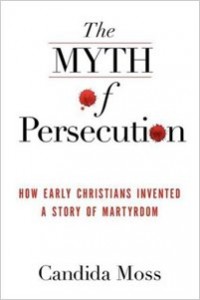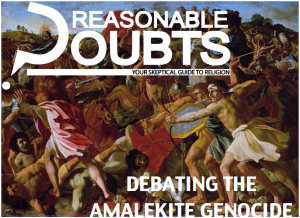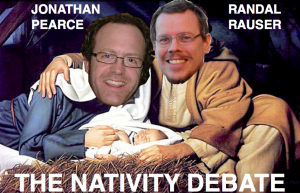 Jesus famously told his disciples “take up your cross and follow me” and the church has proudly circulated stories of Christian martyrs ever since. Stories of believers who refused to renounce their faith in the face of persecution inspire some to great acts of heroism but can also promote a spirit of victimization. In her new book “The Myth of Christian Persecution” Candida Moss argues that the martyrdom stories from the first centuries of the Christian church have been exaggerated, and in many cases completely fabricated. Contrary to popular accounts of church history there never was any widespread systematic persecution of Christians in the first centuries of the common era. Join us as we discuss her fascinating book.
Jesus famously told his disciples “take up your cross and follow me” and the church has proudly circulated stories of Christian martyrs ever since. Stories of believers who refused to renounce their faith in the face of persecution inspire some to great acts of heroism but can also promote a spirit of victimization. In her new book “The Myth of Christian Persecution” Candida Moss argues that the martyrdom stories from the first centuries of the Christian church have been exaggerated, and in many cases completely fabricated. Contrary to popular accounts of church history there never was any widespread systematic persecution of Christians in the first centuries of the common era. Join us as we discuss her fascinating book.
Download RD113
Or subscribe and listen in iTunes or any podcast client:







